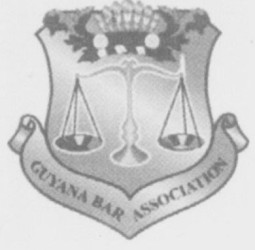Two months ago, the Guyana Bar Association wrote the Registrar of the High Court and the Commissioner of Police advising that action be taken against the use of touts to procure legal business for attorneys-at-law. This action by the Bar Association followed complaints received by the Association of touts operating openly in the Georgetown Magistrates Courts on behalf of attorneys-at-law.

The Legal Practitioners Act defines a tout as any person who (a) procures for remuneration the employment of a legal practitioner in any legal business; or (b) who proposes to any legal practitioner to procure for remuneration the employment of the legal practitioner in such business; or (c) who for purposes of such procurement frequents the precincts of any court and includes a person declared by the Registrar to be a tout in pursuance of section 13.
The Leonard case referred to shows the difficulty, if not the absurdity, or near impossibility, of proving a case of touting. The use of marked notes by the Police put beyond doubt that money was paid and it was admitted that the person convicted as a tout was an employee of an attorney-at-law. But as so often happens in cases where the evidence is damning, resort was had to technicality, in this case that the procedure employed by the Police was a trap and not legal business.
That decision continues to raise two concerns: the attorney-at-law was not charged because the law as it then was, and still is, is that the guilty person was the tout – the employee – and not the employer, the brain behind the criminal act. The other is that Parliament did nothing for over the four decades to plug the loophole in the law which is what an attentive and responsive Parliament usually does when there is a powerful and compelling but unsuccessful dissenting decision.
The allochthonous Code of Conduct governing attorneys-at-law introduced in 2010 goes only part of the way to address the connection or association by attorneys-at-law with touting. It deems the attorney-at-law as being unfit to practise as an attorney-at-law, severe but not severe enough for a practice that for selfish motives brings the entire legal profession into disrepute. Unlike the tout with which the attorney is associated or connected or who s/he employs, the attorney is not subject to criminal prosecution.
The Code is silent on whether such deeming automatically results in the attorney-at-law being struck off the register or whether a motion or petition to the Court is required under section 11 of the Legal Practitioners Act. In any case, an attorney-at-law so struck off has a statutory right under the Act to petition the court to have his/her name restored to the Court Roll or the suspension withdrawn.
Until our Parliament amends the Legal Practitioners Act to deal condignly with touting, that practice will be seen as part of the process for procuring legal services. The Bar Association finds this completely unacceptable and would again ask the authorities to take action in the matter. There are dozens of police in the Magistrates Courts on any given day. They are stationed there, they know who the touts, they see them operating quite openly. But yet they do nothing. Can they not enquire the reason why these notorious faces are there every day greeting members of the public?
Given the difficulties of establishing a criminal case of touting, the duty of the Registrar in seeking to stamp out the practice assumes greater significance. The threshold for action by the Registrar is much lower than for an actual prosecution in the case of (a) and (b) set out in the Legal Practitioners Act. The Bar Association has not had the benefit of a reply from the Registrar to the letter in which we asked that he take appropriate action. We do not however draw any inference from the silence that the Court does not consider touts a matter sufficiently serious to warrant attention.
The Bar Association will continue its efforts to persuade the authorities to take action. It will also try to set up a meeting with the Registrar and the Police to encourage some action since we strongly wish to see this part of the administration of justice addressed. Meanwhile, the Bar Association appeals to all practitioners to consider the harm that this practice does to the reputation of the profession and the damage to the public interest.




